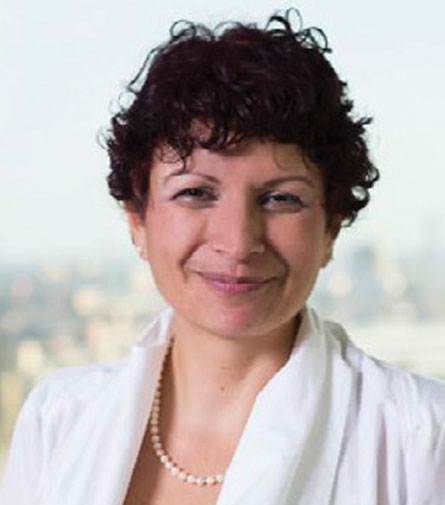 Fariba Anderson, CEO
Fariba Anderson, CEOWith form digitization and workflow automation, AcuteNet’s SaaS capability can be correlated to “Uber” solution for addressing the technology requirements of clinical assessments, care plans and outcomes—delivering the right care to the right patient at an economic rate. Beyond technology innovation, AcuteNet offers an innovative licensing model based on patient record with unlimited user-access—enabling organizations of all sizes to take full advantage of AcuteNet’s underlying open-source technology. “As a result, our customers can create as many clinical assessments as they need on our platform and pay a service fee based on number of patients starting at $5 per patient to less than a penny with increased utilization,” affirms Fariba.
AcuteNet has successfully embedded security and protection of patient data into the DNA of its cloud-based SaaS capabilities with multiple layers of encryption enabling for both online and offline access via any device. Fariba recollects a major challenge faced by a 6000 user based customer—where nurses could not rely on internet connection to access cloud based capabilities. With AcuteNet’s offline feature, the customer was able to down load encrypted FIPS 197 patient data and automatically synchronize the patient data to their corporate systems.
In addition, AcuteNet framework accommodates two-way data interchange and single-sign-on feature as well to help large enterprise customers such as government organizations and insurance companies to fully control AcuteNet SaaS offering as an extension to their corporate systems.
In one instance, a private healthcare provider required AcuteNet to be accessed through their corporate VPN infrastructure and Single Sign On environment with patient data fed to AcuteNet on demand at the time of assessment. Upon completion of care delivery by the nurses, a number of forms are completed and signed electronically for regulatory purposes. These digitized forms are connected to customer’s ERP system bi-directionally, whereby clinical assessment conducted on AcuteNet’s private cloud is fed to Corporate ERP system in real time. “Through AcuteNet SaaS capability, the client was able to monitor the status of patient care and nurse’s care delivery with full protection of patient data,” affirms Fariba.
AcuteNet’s SaaS products are empowered by AcuteNet Form Digitization and Workflow Automation Framework to ensure the protection of sensitive information in accordance with privacy legislation and industry standards. This is delivered in collaboration with: GeeksForless for technology talent, Red Hat for open source platform and Dell / CogecoPeer1 for secured private cloud infrastructure.
“Simplifying life, improving efficiency, and reducing costs is at the heart of AcuteNet Healthcare Information Systems; we open the doors to the future as a trusted partner for every nurse and clinician to deliver care to their patients with a sharing economy model,” concludes Fariba.
AcuteNet has successfully embedded security and protection of patient data into the DNA of its cloud-based SaaS capabilities with multiple layers of encryption enabling for both online and offline access via any device. Fariba recollects a major challenge faced by a 6000 user based customer—where nurses could not rely on internet connection to access cloud based capabilities. With AcuteNet’s offline feature, the customer was able to down load encrypted FIPS 197 patient data and automatically synchronize the patient data to their corporate systems.
In addition, AcuteNet framework accommodates two-way data interchange and single-sign-on feature as well to help large enterprise customers such as government organizations and insurance companies to fully control AcuteNet SaaS offering as an extension to their corporate systems.
In one instance, a private healthcare provider required AcuteNet to be accessed through their corporate VPN infrastructure and Single Sign On environment with patient data fed to AcuteNet on demand at the time of assessment. Upon completion of care delivery by the nurses, a number of forms are completed and signed electronically for regulatory purposes. These digitized forms are connected to customer’s ERP system bi-directionally, whereby clinical assessment conducted on AcuteNet’s private cloud is fed to Corporate ERP system in real time. “Through AcuteNet SaaS capability, the client was able to monitor the status of patient care and nurse’s care delivery with full protection of patient data,” affirms Fariba.
AcuteNet’s SaaS products are empowered by AcuteNet Form Digitization and Workflow Automation Framework to ensure the protection of sensitive information in accordance with privacy legislation and industry standards. This is delivered in collaboration with: GeeksForless for technology talent, Red Hat for open source platform and Dell / CogecoPeer1 for secured private cloud infrastructure.
“Simplifying life, improving efficiency, and reducing costs is at the heart of AcuteNet Healthcare Information Systems; we open the doors to the future as a trusted partner for every nurse and clinician to deliver care to their patients with a sharing economy model,” concludes Fariba.




